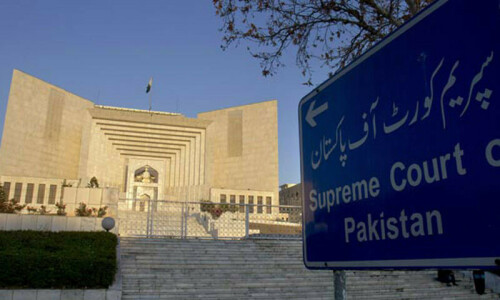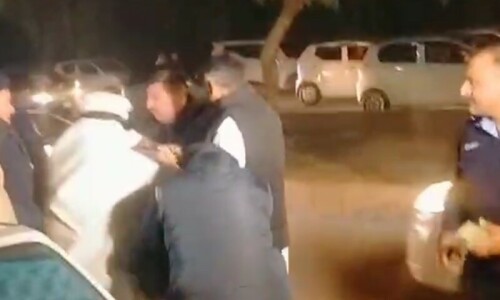ISLAMABAD, March 18: The main parties likely to form the new government — the Pakistan People’s Party, the Pakistan Muslim League-N and the Awami National Party — are reported to be considering to reverse the economic policies of the last government in order to steer the country out of the present crisis.
A PML-N leader who is closely involved in talks with financial teams of the other two coalition parties told Dawn that overcoming the economic challenges would be among top priorities of the coalition government.
He said that in their three meetings, Asif Ali Zardari, Mian Nawaz Sharif and Asfandyar Wali Khan, agreed to drastically change the economic policies because these were not transparent and had caused many problems for the country.
The PML-N leader, former commerce minister Ishaq Dar, said the policies, particularly the fiscal and monetary policies, would have to be reversed.
He said the country could not afford to follow these policies which had plunged it into serious economic and financial difficulties.
“First of all we will have to correct the balance sheet and set things right only then there could be any hope for improvement in the overall economic structure that had been destroyed by the previous rulers,” Mr Dar said.
He said there was no transparency in the economic policies and as a result every segment of the society was suffering.
“God knows how long they would suffer and get any respite,” he said, adding that the new government would be facing a mountain of problems due to ill-conceived policies of the previous ruling party.
Mr Dar said the priority of the new government would be to ensure that there were no more queues for flour at stores.
He said there was consensus among the PPP, PML-N and the ANP to urgently take corrective actions and to deliver as quickly as possible. “I know and we all know that there are difficulties ahead and everyone has to work hard to deliver under these circumstances,” Mr Dar said.
He said that the people would be taken into confidence by the new government in framing new economic policies.














































Dear visitor, the comments section is undergoing an overhaul and will return soon.